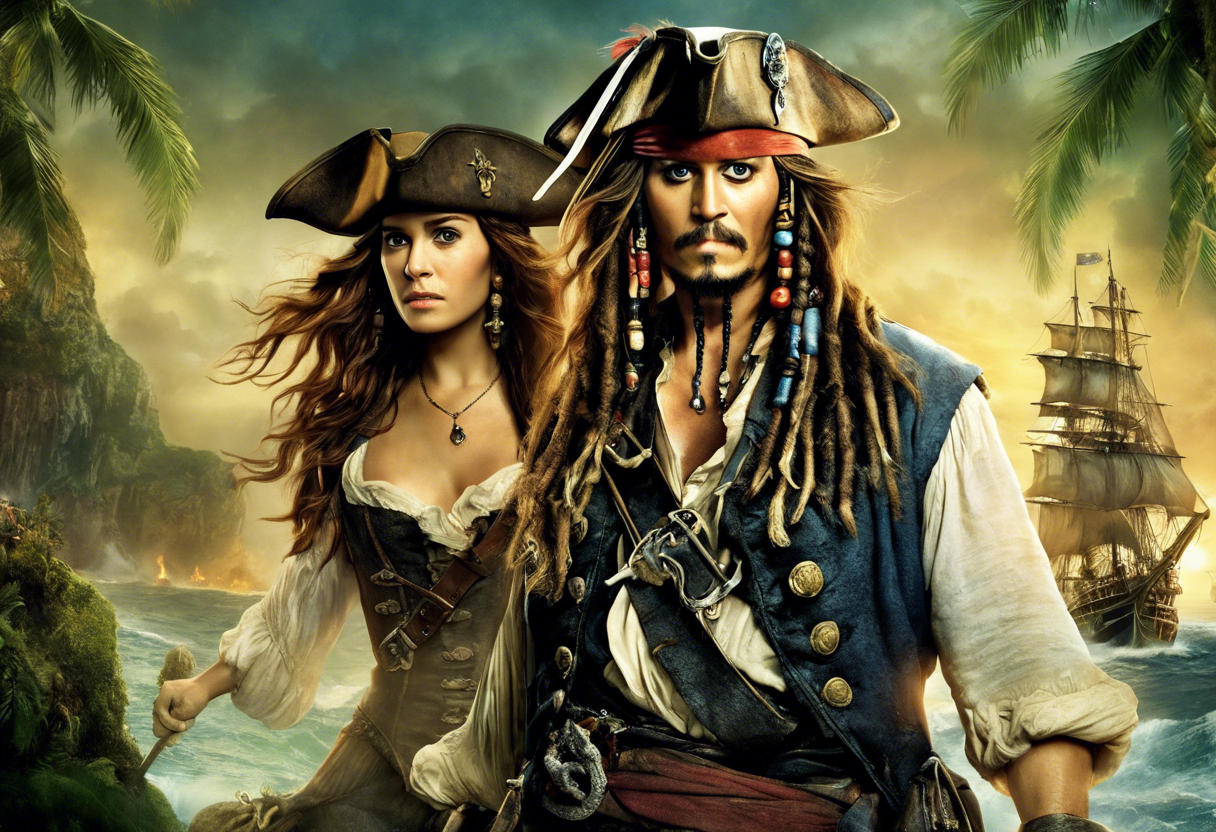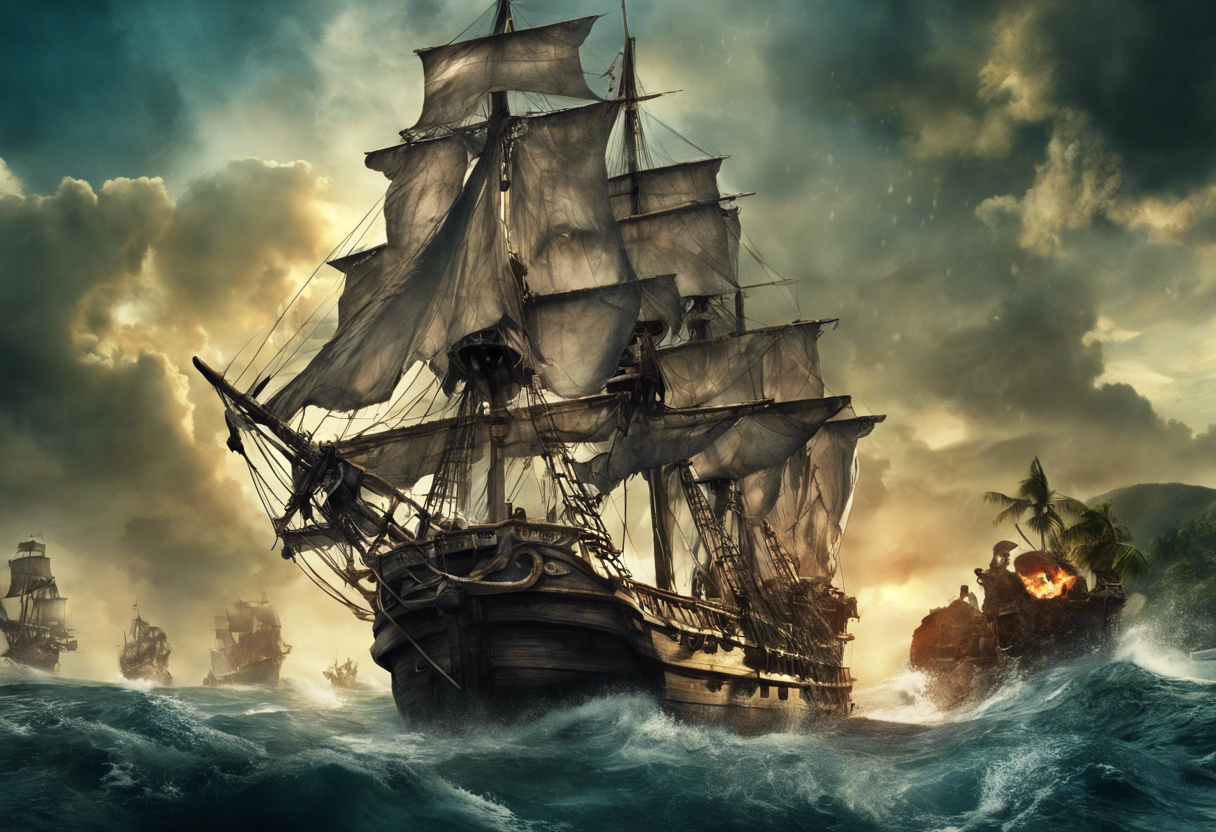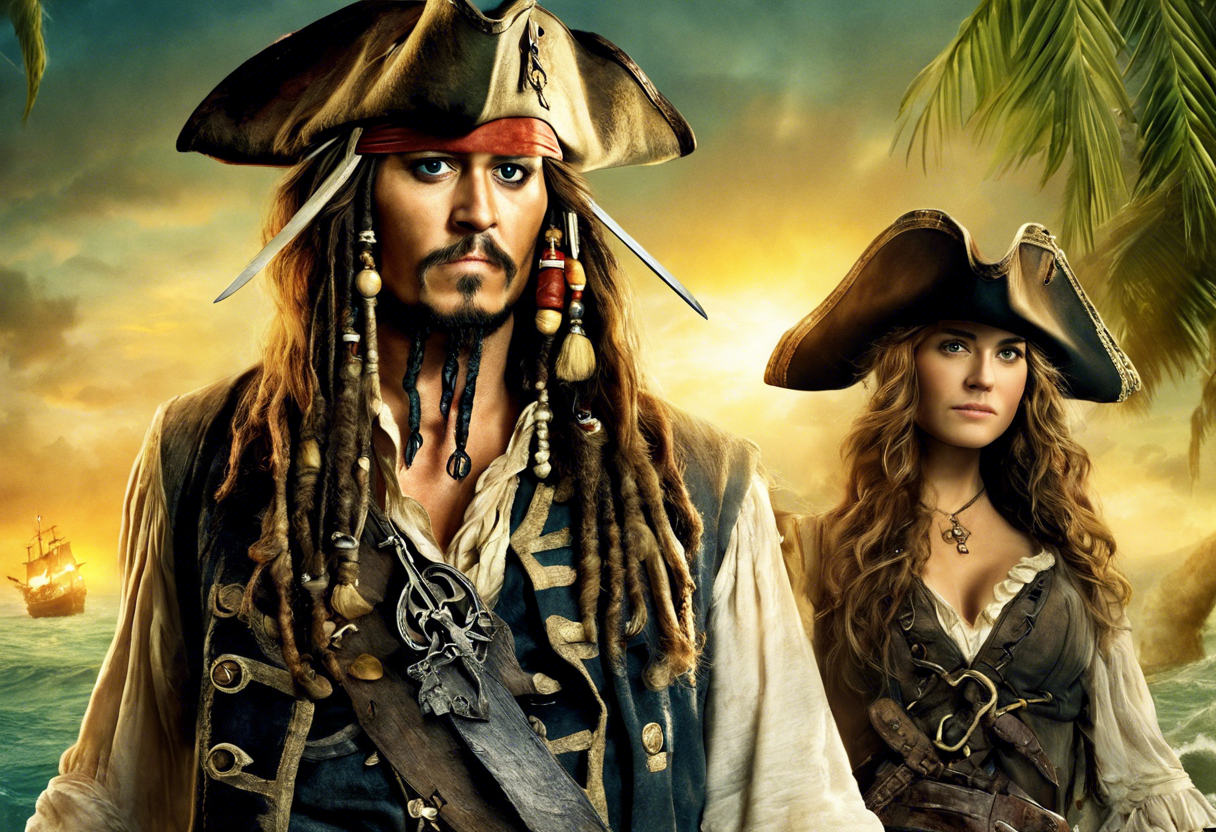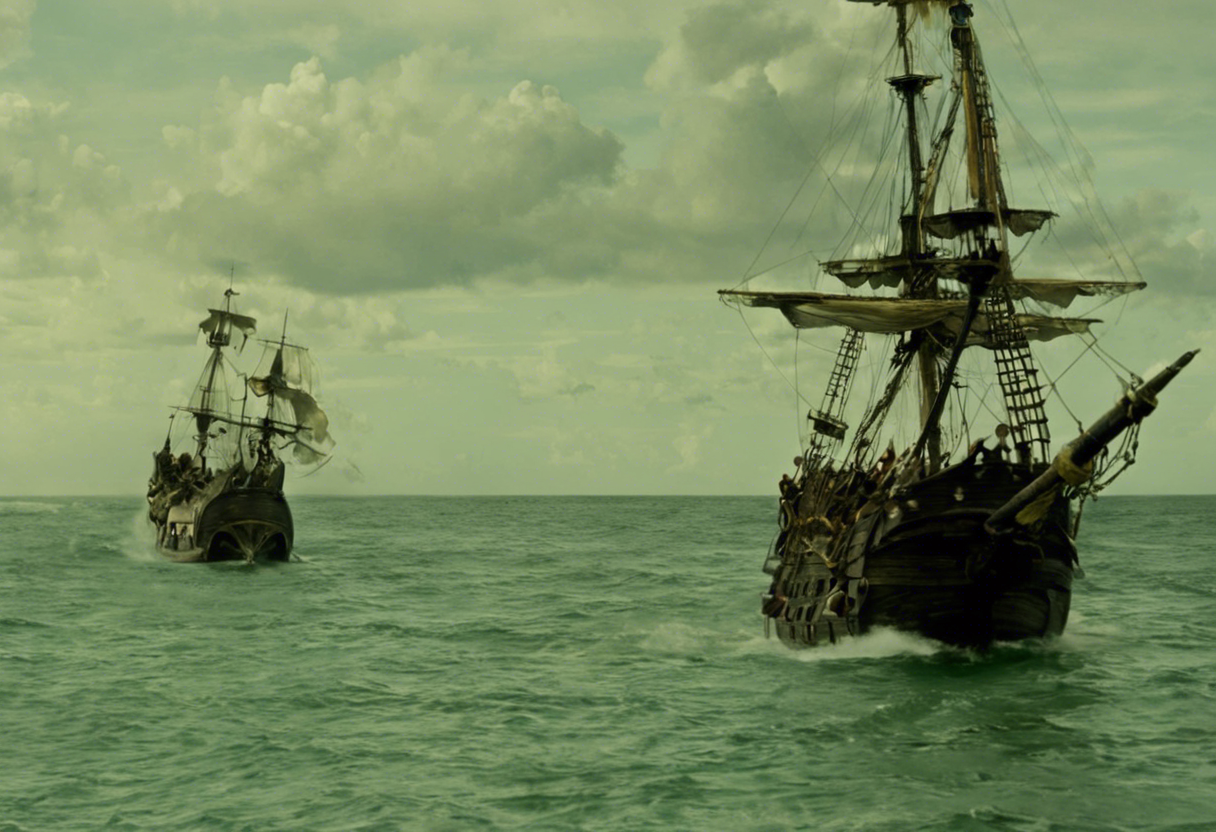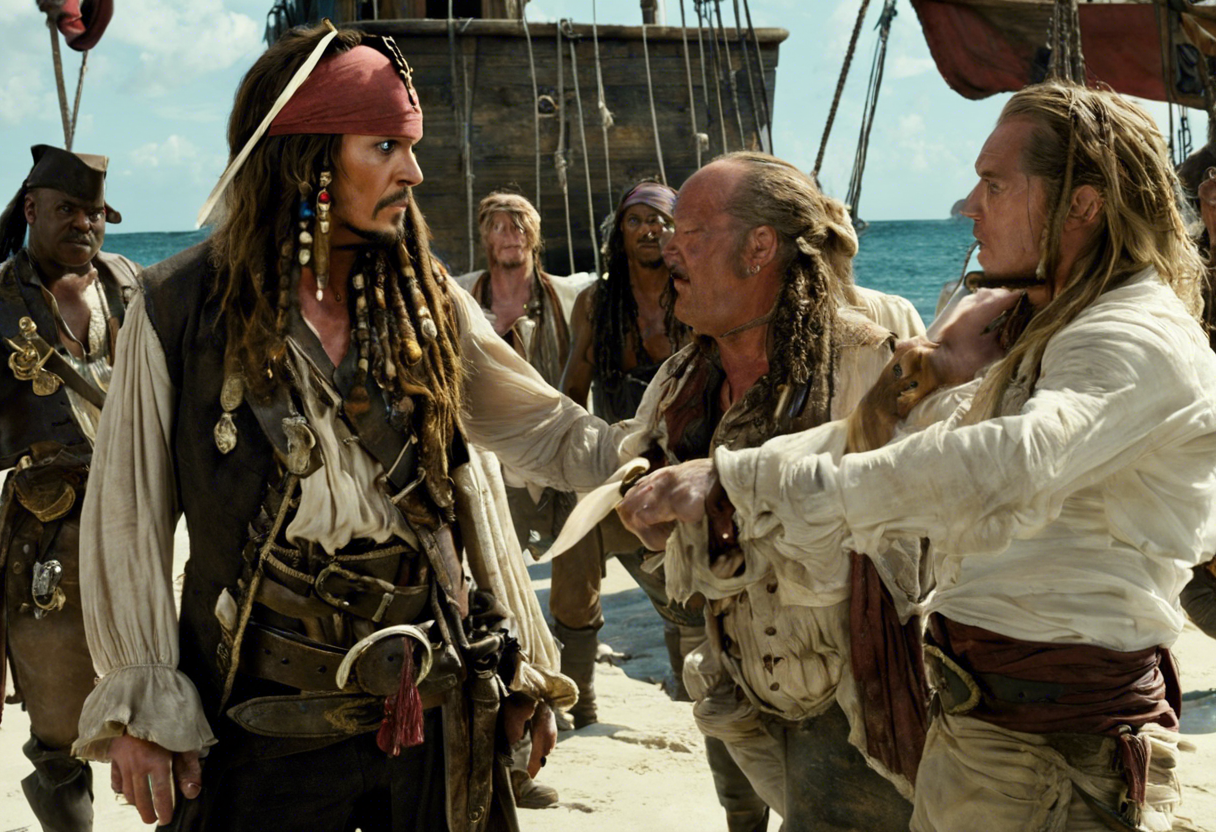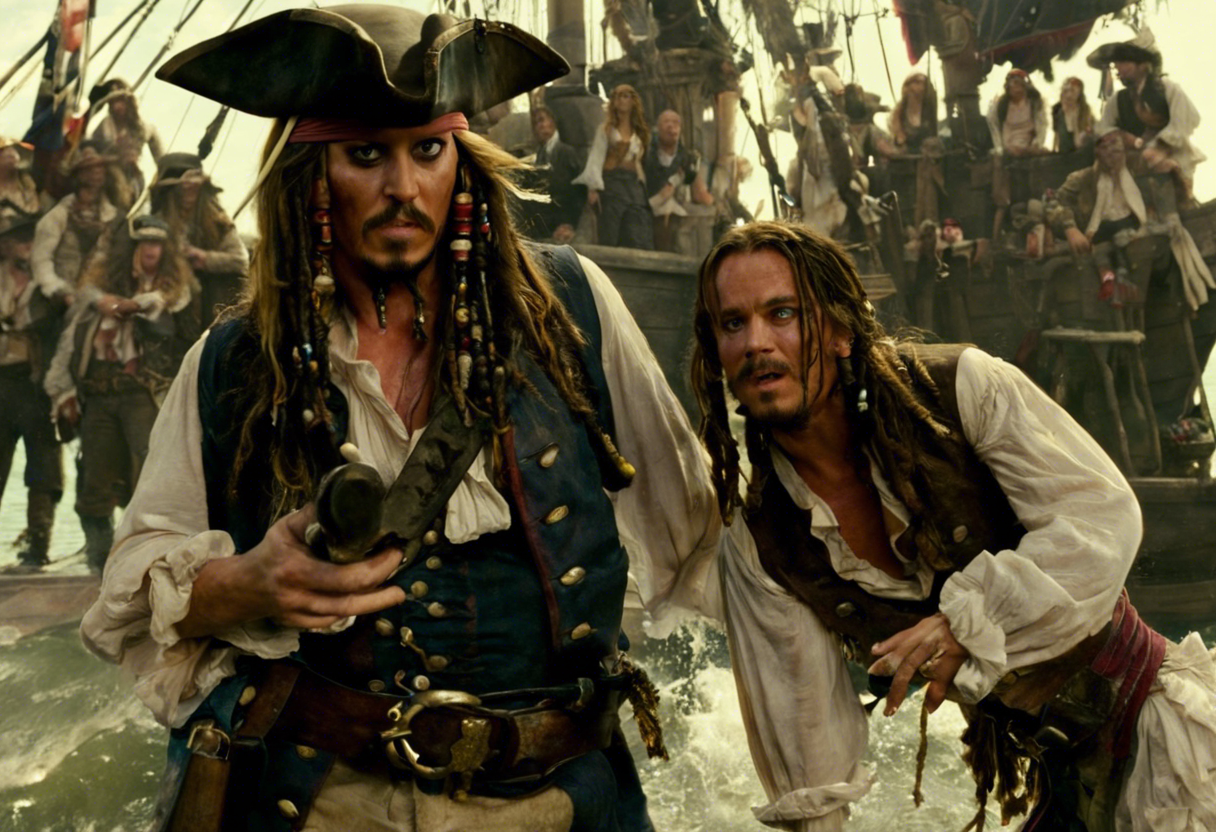Contents
Introduction
Pirates of the Caribbean: On Stranger Tides is the fourth installment in the beloved Pirates of the Caribbean film series, a franchise that has captivated audiences worldwide with its blend of adventure, fantasy, and swashbuckling action. Directed by Rob Marshall and produced by Jerry Bruckheimer, the film was released on May 20, 2011, in the United States. The screenplay was written by Ted Elliott and Terry Rossio, and it is loosely based on the 1987 novel On Stranger Tides by Tim Powers.
This film stands out within the series for several reasons. It marks a significant shift in the narrative, focusing more on the standalone adventure of Captain Jack Sparrow rather than the complex interwoven storylines of the previous films. The movie also introduces new characters, such as Angelica (Penelope Cruz) and Blackbeard (Ian McShane), which adds fresh dynamics to the franchise. The production involved extensive use of 3D technology, enhancing the visual experience and immersing audiences in the fantastical world of pirates and mythical creatures.
Plot Summary
The story of Pirates of the Caribbean: On Stranger Tides begins in 1750, with Captain Jack Sparrow (Johnny Depp) escaping from royal custody in London. Jack soon finds himself entangled in a quest for the Fountain of Youth, a legendary source of immortality. His journey starts when he meets Angelica, a mysterious woman from his past who is also the daughter of the infamous pirate Blackbeard.
Jack is shanghaied and forced to join Blackbeard’s crew aboard the Queen Anne’s Revenge. Blackbeard, who practices voodoo magic, is on a mission to find the Fountain of Youth to avoid a prophesied death by a one-legged man. The quest involves several key elements: the silver chalices of conquistador Ponce de León and the tear of a mermaid. These ingredients are crucial for the ritual that grants immortality, but at a cost – the person who drinks the water with the tear will gain all the years of life from the other person involved in the ritual.
The plot thickens as Jack navigates through treacherous waters, encountering various adversaries, including the British Navy and the Spanish Armada. Along the way, he reunites with old allies like Joshamee Gibbs (Kevin McNally) and crosses paths with new characters such as Philip Swift (Sam Claflin), a missionary who falls in love with the mermaid Syrena (Àstrid Bergès-Frisbey).
The film’s narrative is driven by the race to the Fountain of Youth, with multiple factions vying for control. Jack’s cunning and resourcefulness are put to the test as he navigates through this complex web of alliances and betrayals, all while dealing with his own moral ambiguities and the lure of eternal life.
Themes and Symbolism
Pirates of the Caribbean: On Stranger Tides delves into several profound themes that resonate deeply with audiences. One of the central themes is the human struggle against death and the quest for immortality. The Fountain of Youth serves as a metaphor for humanity’s eternal desire to transcend mortality, highlighting the futility and danger of seeking eternal life through earthly means [1][3].
Another significant theme is redemption. The film raises questions about whether anyone is beyond redemption, particularly through the characters of Jack Sparrow and Blackbeard. This theme is intertwined with the idea of faith and the true nature of salvation, suggesting that redemption is not something that can be achieved through material means but rather through a deeper, spiritual connection [3].
The film also explores the theme of love and sacrifice. The relationship between Philip and Syrena, for example, underscores the idea that true love involves sacrifice and selflessness. This theme is further emphasized by the ritual of the Fountain of Youth, which requires one person to give up their life for another to gain immortality.
Cultural Impact
Pirates of the Caribbean: On Stranger Tides had a significant cultural impact upon its release. The film broke several box office records and became the third highest-grossing film of 2011, earning over $1.046 billion worldwide [2].
The movie’s influence extends beyond its commercial success. It contributed to the ongoing romanticization of pirates in popular culture, portraying them as complex characters driven by a mix of motivations including adventure, individualism, and a rejection of societal constraints [4].
The film’s use of 3D technology also marked a significant milestone in cinematic history, pushing the boundaries of visual storytelling and enhancing the immersive experience for audiences.
Critical Reception
Pirates of the Caribbean: On Stranger Tides received mixed reviews from critics at the time of its release. While some praised the film’s visual effects, action sequences, and the performances of the cast, others found the plot to be less engaging compared to the previous installments.
Despite the mixed critical reception, the film was a commercial success and maintained the franchise’s popularity. Over the years, the film has developed a loyal fan base, with many appreciating its unique storyline and the introduction of new characters.
Legacy
Pirates of the Caribbean: On Stranger Tides continues to hold a significant place in the franchise and in cinematic history. It marked a transition in the series, allowing for a fresh start while still maintaining the core elements that fans love.
The film’s influence can be seen in subsequent films and media, particularly in how it handled the theme of immortality and the complexities of pirate characters. The success of On Stranger Tides also paved the way for the fifth installment, Dead Men Tell No Tales, released in 2017.
In conclusion, Pirates of the Caribbean: On Stranger Tides is a compelling addition to the franchise, offering a rich narrative, memorable characters, and profound themes that resonate with audiences. Its impact on popular culture and its enduring relevance make it a significant film in the world of cinema.
References
- https://literaryanalysis.net/2011/06/02/movie-review-pirates-of-the-caribbean-on-stranger-tides/
- https://en.wikipedia.org/wiki/Pirates_of_the_Caribbean:_On_Stranger_Tides
- http://www.thechristiannerd.com/2011/05/101-review-pirates-of-the-caribbean-on-stranger-tides/
- https://www.piratesinfo.com/history-of-piracy/impact-and-influence-of-piracy/impact-of-piracy-on-culture-and-society/
- https://en.wikipedia.org/wiki/Pirates_of_the_Caribbean

